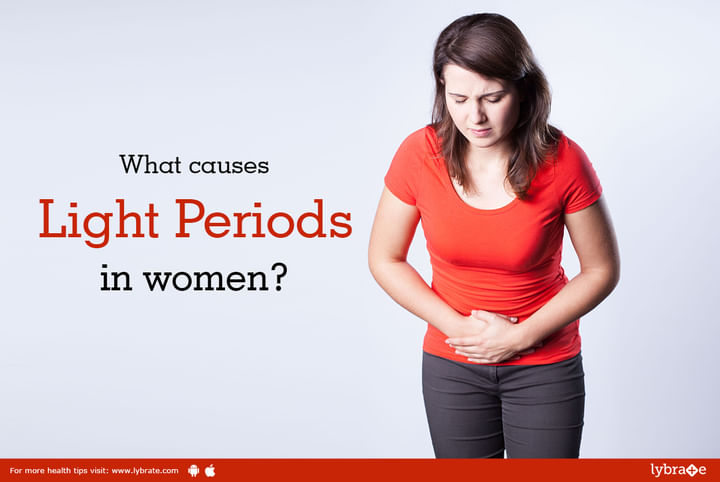What causes light periods in women?
Light periods refer to menstrual periods that have very light flow and are characterized by a lesser number of days than usual. Although the menstrual cycles vary from a woman to another, the duration for a normal period is around every 28 days. Each period lasts for approximately four to seven days. The amount of blood loss in a normal period is around 20 ml to 80 ml. However, loss of blood below 20 ml can be considered as light periods.
The causes of light periods can vary for different woman. Some of them are:
- An imbalance in hormone levels in the body like PCOD (polycystic ovarian disease).
- Light periods are most common in women who are approaching menopause. This is because, at this time, women tend to produce less estrogen, a hormone responsible for regulating menstrual periods.
- Light periods can be common in girls who have just started to menstruate.
- Excessive bouts of exercise, a thyroid condition or an eating disorder can be also responsible for light periods in women.
- Women who use hormonal or oral contraceptives may also have a chance of experiencing light periods.
- An important cause of scanty menses is implantation bleeding. That means sometimes, despite being pregnant, little amount of bleeding can happen at the expected time of menses in the first three months of Pregnancy. So it's important to rule out pregnancy at the earliest.
Certain symptoms usually follow light periods. These symptoms vary according to the underlying causes of this condition.
Some of the common symptoms which accompany light periods are:
- Abdominal pain
- Frequent infections, namely yeast and other fungal infections
- Painful sexual intercourse
- Missed periods
In some cases, light periods might turn out to be a sign of a fatal condition that should be immediately administered to. An example of such would be an ectopic pregnancy, which can cause light or heavy bleeding. Although light periods are rarely due to serious diseases, neglect can lead to heightened complications and irreversible damage.
Some of the complications can are:
- Serious discomfort and pain
- Difficulty in conception or infertility
- Osteoporosis and osteopenia
'Consult'.
Related Tip: All About Irregular Periods - Their Types and Causes



+1.svg)
